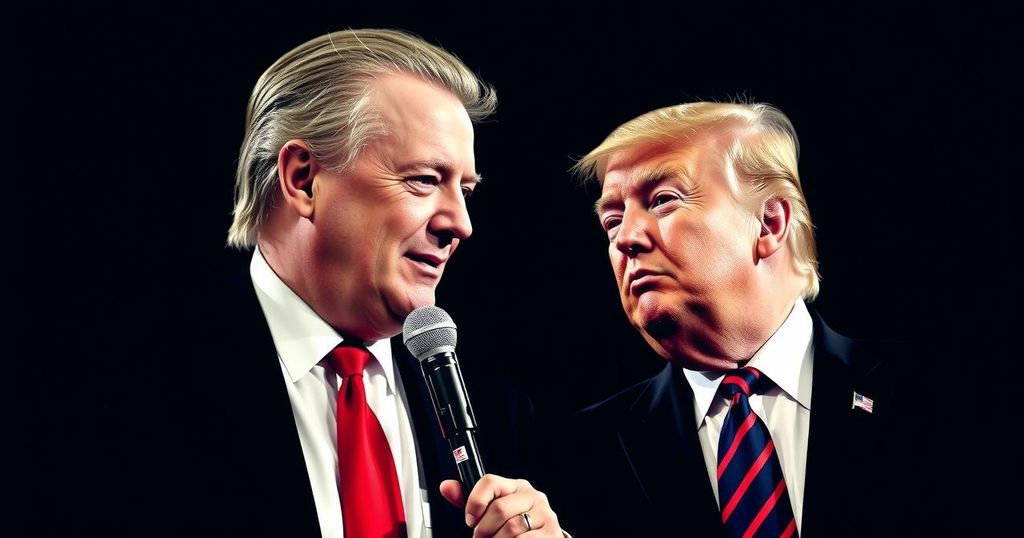Elon Musk’s Controversial Tactics to Influence the U.S. Election for Trump
Elon Musk is employing controversial tactics to support Donald Trump’s election campaign by offering substantial cash rewards for petition signatures. These actions have prompted discussions about their legality, as Musk attempts to influence voter behavior and steer governmental policy toward benefiting his business interests.
As the November 5 elections approach, it appears that Elon Musk is utilizing unconventional and questionable methods to support his ally, Donald Trump, in the race for the U.S. presidency. Musk established the “America Pac,” a political action committee that allegedly aims to invigorate Trump’s campaign through significant cash incentives. Every day leading up to the election, the committee pledges to award $1 million to a randomly selected person who has signed a petition advocating for free speech and gun rights. This follows Musk’s previous offers of financial compensation to registered voters in key swing states, with payments beginning at $47 and rising to $100 in targeted areas such as Pennsylvania. While Musk’s purchases of petition signatures do not directly translate to vote-buying, experts, including Rick Hasen from the UCLA School of Law, suggest such tactics tread dangerously close to illegal activity. Musk also appears to be employing a two-pronged strategy with the “Future Coalition Pac,” which disseminates misleading information regarding Vice President Kamala Harris’s stances on Middle Eastern policy to various voter demographics, thereby exacerbating political polarization. The influence of substantial financial contributions in American politics has escalated since the Citizens United ruling, which permitted unlimited corporate and interest group spending on elections via Super Pacs. This has facilitated a staggering influx of cash into political races, primarily favoring Republican candidates. Musk’s motivations align intricately with those of other wealthy patrons backing Trump, as evidenced by the significant contributions made, totaling approximately $75 million from Musk alone, and even more from figures such as Miriam Adelson. These influential donors anticipate favorable policy returns, with Musk potentially seeking greater government contracts for his enterprises under a Trump administration. The prospect of Musk serving as a cut-cost overseer in government raises concerns about the prioritization of personal profit over public interests.
The growing power of money in U.S. politics has manifested through Super Pacs, which allow donors to contribute substantial amounts without limits. Since the Citizens United ruling, a significant shift in political financing has occurred, dramatically increasing the influence of wealthy individuals over electoral outcomes. This environment has encouraged billionaires like Elon Musk and Miriam Adelson to leverage their financial resources to gain political favor and influence policy, particularly concerning issues such as foreign policy and corporate interests.
In summary, Elon Musk’s efforts to financially incentivize support for Donald Trump reflect a troubling trend in U.S. politics, where monetary stakes overshadow democratic processes. Despite not directly compensating voters, Musk’s tactics raise ethical questions and potential legal implications. The election landscape is increasingly characterized by significant financial transactions that could ultimately reshape governmental priorities and diminish public interest.
Original Source: www.theguardian.com




Post Comment